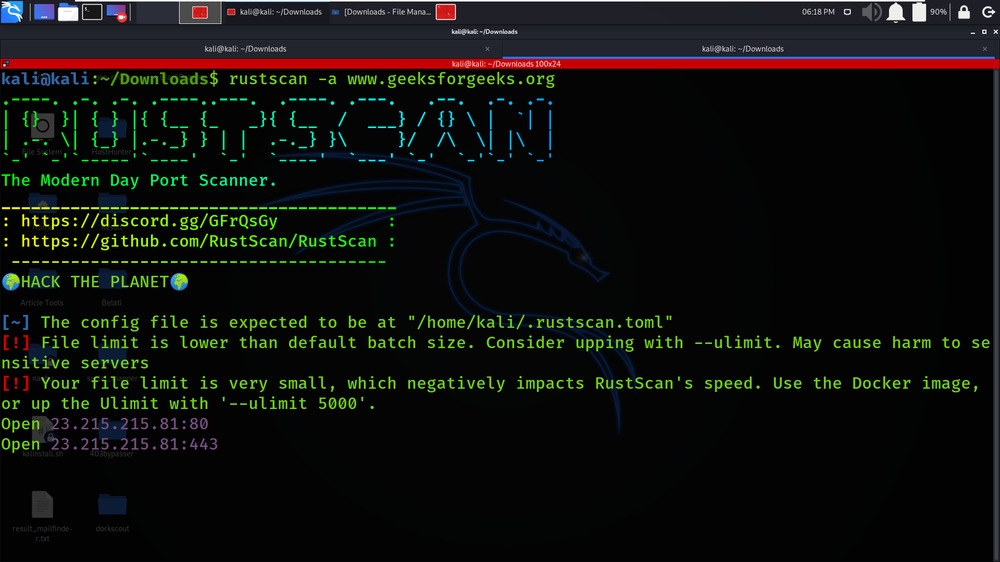Introduction:
Hacking might sound mysterious, but in the realm of cybersecurity, it’s about finding and fixing vulnerabilities. Think of it like being a digital detective! To excel in ethical hacking, you need the right programming languages. Let’s embark on a journey through different languages that make hacking for good a thrilling adventure.
Python
Python is your friend. It’s super easy to learn and lets you write tools that scan networks, automate tasks, and perform tricks. For instance, you can craft a tool to find open ports on a computer.
Example: With Python, you can make a “port checker” like this:
import socket
target = “192.168.1.1”
for port in range(1, 100):
sock = socket.socket(socket.AF_INET, socket.SOCK_STREAM)
sock.settimeout(1)
result = sock.connect_ex((target, port))
if result == 0:
print(f”Port {port} is open”)
sock.close()
JavaScript
Now you’re in the land of web apps. JavaScript is your spellbook. You can use it to uncover secrets on web pages, find weaknesses, and do cool tricks like Cross-Site Scripting (XSS), where you can make a website say whatever you want!
Example: Try this code to pop up a message on a vulnerable website:
<script>
alert(“This website is vulnerable to XSS!”);
</script>
SQL: Database Explorer
As your exploration advances, you encounter a scenario where a database stands as the guardian. SQL serves as your tool, letting you interact with databases and potentially uncover their concealed information. Imagine this as inputting a unique code that reveals hidden pathways!
Example: Sneak into a login page by typing `’ OR ‘1’=’1` as the password. Tricky, right?
Ruby
You find a web application, and that’s your target. Ruby becomes your aid. It’s like your toolkit to create tools that navigate through the app’s ins and outs, and sometimes, even get it to do stuff it’s not supposed to do.
Example: Craft a sneaky request in Ruby to fool a vulnerable castle (web app):
require ‘net/http’
target_url = “http://vulnerable-website.com”
payload = “‘; DROP TABLE users; –“
uri = URI.parse(target_url)
http = Net::HTTP.new(uri.host, uri.port)
request = Net::HTTP::Get.new(uri.path + “?param=” + payload)
response = http.request(request)
PowerShell
In the tech world, you encounter Windows systems. PowerShell is your high-tech gadget. It lets you command computers remotely, dig for info, and be a true Windows warrior.
Example: Ask a remote Windows computer for its secrets using PowerShell:
Invoke-Command -ComputerName RemoteComputer -ScriptBlock { Get-WmiObject Win32_ComputerSystem }
Bash Scripting
Bash scripting becomes your practical tool. It equips you to achieve impressive results directly through the command line. With it, you can automate tasks, manage files, and smoothly navigate complex systems.
Example: Use a bash script to automate repetitive tasks, like scanning a range of IP addresses for open ports.
#!/bin/bash
for ip in $(seq 1 255); do
target=”192.168.1.$ip”
nmap -p 80 $target
done
C/C++
In the depths of the digital world, you encounter low-level challenges. C/C++ are your undercover agents. They let you craft precise exploits for system vulnerabilities, like opening secret backdoors and manipulating memory.
Example: Create a simple buffer overflow exploit in C to crash a vulnerable program:
#include <stdio.h>
#include <string.h>
int main() {
char buffer[100];
strcpy(buffer, “This is a long string that causes a buffer overflow!”);
return 0;
}
PHP
As you dig into the web’s depths, you encounter websites built with PHP. Think of PHP as your trusty map. It helps you move around tricky web apps, spot weaknesses like remote code tricks, and figure out how data flows through the digital maze.
**Example:** Exploit a PHP application’s file inclusion vulnerability by crafting a special request to read sensitive files:
http://vulnerable-website.com/index.php?page=../../../etc/passwd
Java
In the realm of ethical hacking, Java stands as a potent language with diverse applications. Its ability to run on various platforms makes it a versatile tool for crafting exploits, analyzing code, and securing systems.
Example: Employ Java to create a simple tool that analyzes the security of a website by checking for common vulnerabilities.
import org.jsoup.Jsoup;
import org.jsoup.nodes.Document;
import java.io.IOException;
public class WebsiteSecurityScanner {
public static void main(String[] args) {
String targetUrl = “http://vulnerable-website.com”;
try {
Document document = Jsoup.connect(targetUrl).get();
// Check for security vulnerabilities here
} catch (IOException e) {
e.printStackTrace();
}
}
}
Go
Go, also known as Golang, is gaining popularity among hackers for its simplicity and efficiency. It’s useful for developing tools to analyze networks, build custom exploits, and assess vulnerabilities.
Example: Develop a simple network scanner in Go to identify open ports on a target system.
package main
import (
“fmt”
“net”
“time”
)
func main() {
target := “192.168.1.1”
for port := 1; port <= 100; port++ {
conn, err := net.DialTimeout(“tcp”, fmt.Sprintf(“%s:%d”, target, port), time.Second)
if err == nil {
fmt.Printf(“Port %d is open\n”, port)
conn.Close()
}
}
}
Conclusion:
Programming languages are your companions in the world of ethical hacking, pentesting, and bug bounties. Whether you’re scripting tasks, exploring web vulnerabilities, tinkering with databases, infiltrating web apps, mastering system exploits, automating with bash, or unraveling PHP intricacies, each language equips you with unique skills. With this diverse toolkit, you’re not just hacking; you’re securing the digital realm in the most exciting way possible.
Disclaimer: The content of this blog is intended solely for educational purposes.






